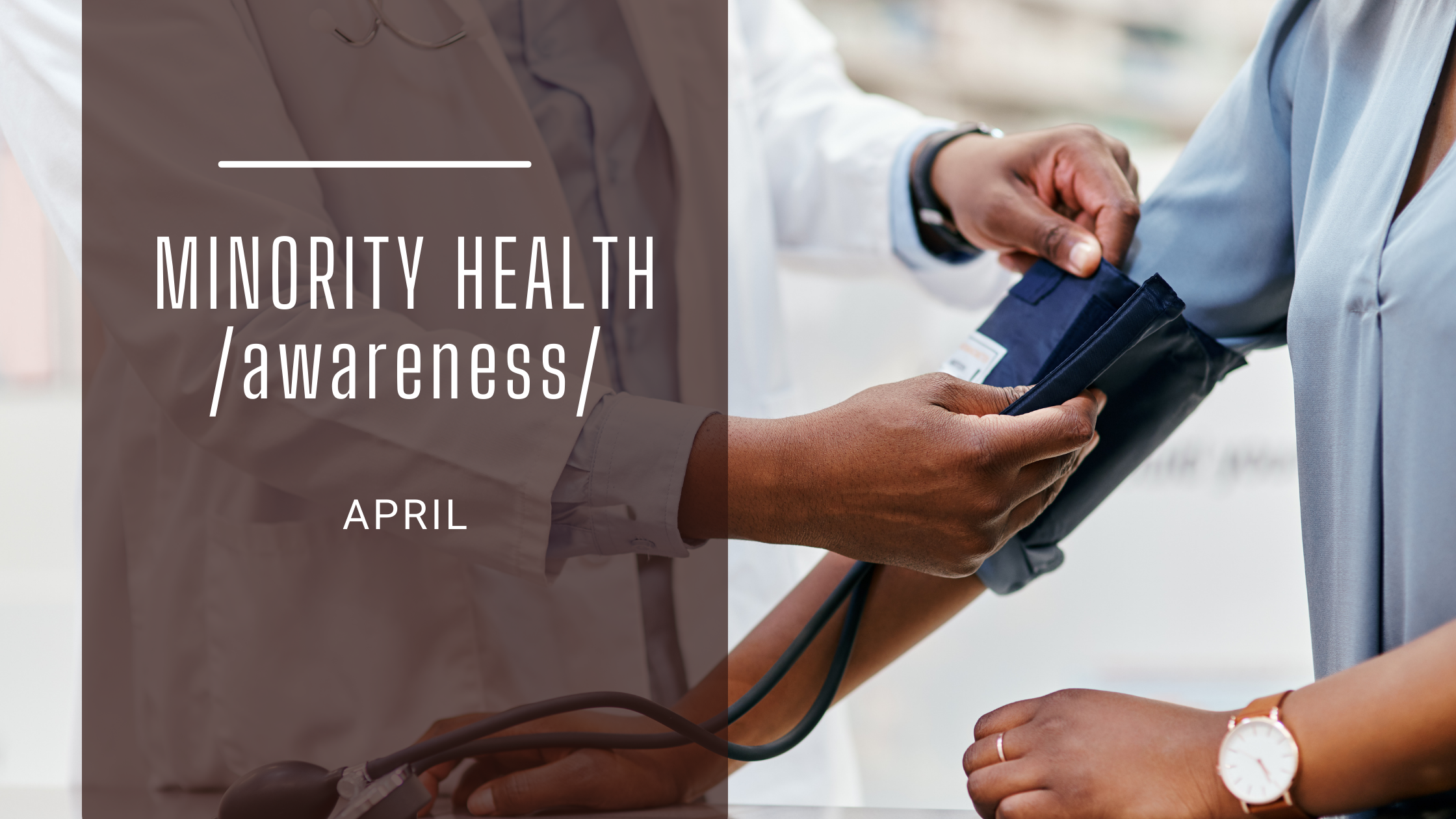April - Minority Health Awareness

April is Minority Health Awareness month, a time to identify health issues that affect minority and under-served populations. Informed prevention, early detection, and treatment efforts can help reduce health disparities by promoting educational efforts on the health problems currently facing minorities and other under-served populations. Unfortunately, many racial and ethnic minority populations can’t make healthy choices because of factors like where they live, their race or ethnicity, their education, their physical or mental abilities, or their income. As a result of these health disparities, they experience higher rates of diabetes, adverse mental health outcomes, hypertension, obesity, asthma, heart disease, cancer and preterm birth. By addressing barriers and implementing effective educational programs, government health organizations can empower minorities and other under-served populations with the knowledge to make informed choices, reduce health risks, and lead healthier lives. Heart disease is the leading cause of death for minorities, in the United States and can affect adults at any age. Women are more likely than men to have "silent" heart disease, meaning women's symptoms may be different and can be harder to diagnose. Knowing the facts about your health problem, as well as the signs, symptoms and risk factors, can help you take steps to protect your health and seek proper treatment.
Cancer is the second leading cause of death for minorities and under-served populations. Living a healthy lifestyle, like keeping a healthy weight, avoiding tobacco, and limiting the amount of alcohol you drink, can help reduce preventable cancer deaths.
Physical activity and nutrition are two of the best things all people can do to improve their health.
Benefits of Physical Activity:
- Reduce pain and improve function among adults with arthritis
- Reduce the risk of stroke, heart disease, diabetes, high blood pressure,
- Reduce mortality and recurrent breast cancer risk
- Lower colon cancer risk
- Decrease depression as effectively as certain medications and behavioral therapies
Access to affordable nutritious food are associated with decreased risk for multiple chronic health conditions such as diabetes, obesity, heart disease, mental health disorders and other chronic diseases. The DASH diet aims to reduce intake of processed food and sodium, typically ranging from 1500 to 2300 mg/day,59 and promotes healthier alternatives such as vegetables, nuts and whole grains. This dietary approach is effective in reducing blood pressure due to the essential nutrients which include potassium, calcium and magnesium.
The Arkansas Department of Health offers free breast cancer and cervical cancer screenings for uninsured and underinsured women, along with follow-up services. Call to schedule at 1-833-693-2942.The Arkansas Minority Health Commission’s Mobile Health Unit (MHU) is a screening center on wheels. The MHU provides an avenue to preventive screenings by reaching people where they are in the state. The MHU screenings include blood pressure, cholesterol, blood sugar/glucose, A1C, HIV, height, weight, BMI, colon cancer, plus more! The MHU coordinator follows up with participants who have abnormal results and shares county level resources for followup medical care. For more information, contact Jessica Williams at 501-682-8825.
Free colonoscopy screenings will be offered May 9th at Arkansas Gastroenterology for uninsured and underinsured individuals. For details call Arkansas Gastroenterology at 501-945-3343.
References:
https://www.cdc.gov/cancer/health-equity/equity.htm
www.nhlbi.nih.gov/education/dash-eating-plan
https://healthliteracy.uams.edu/for-patients/online-health-information/
